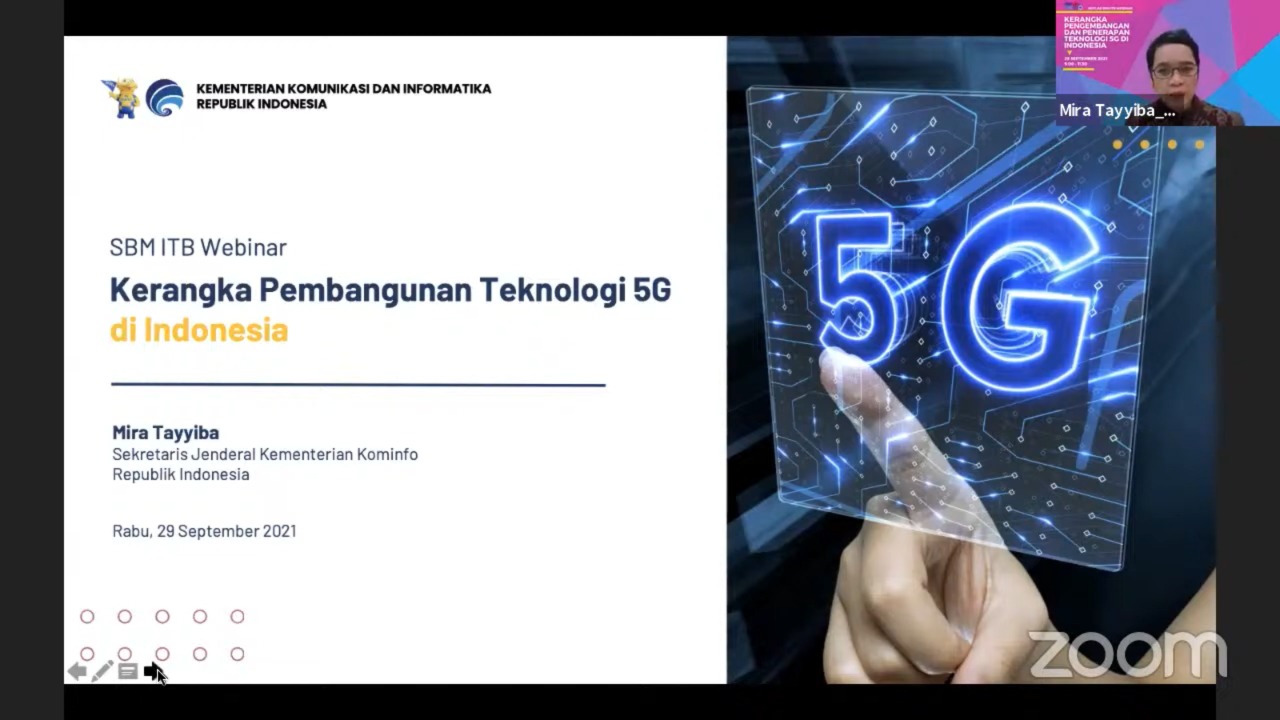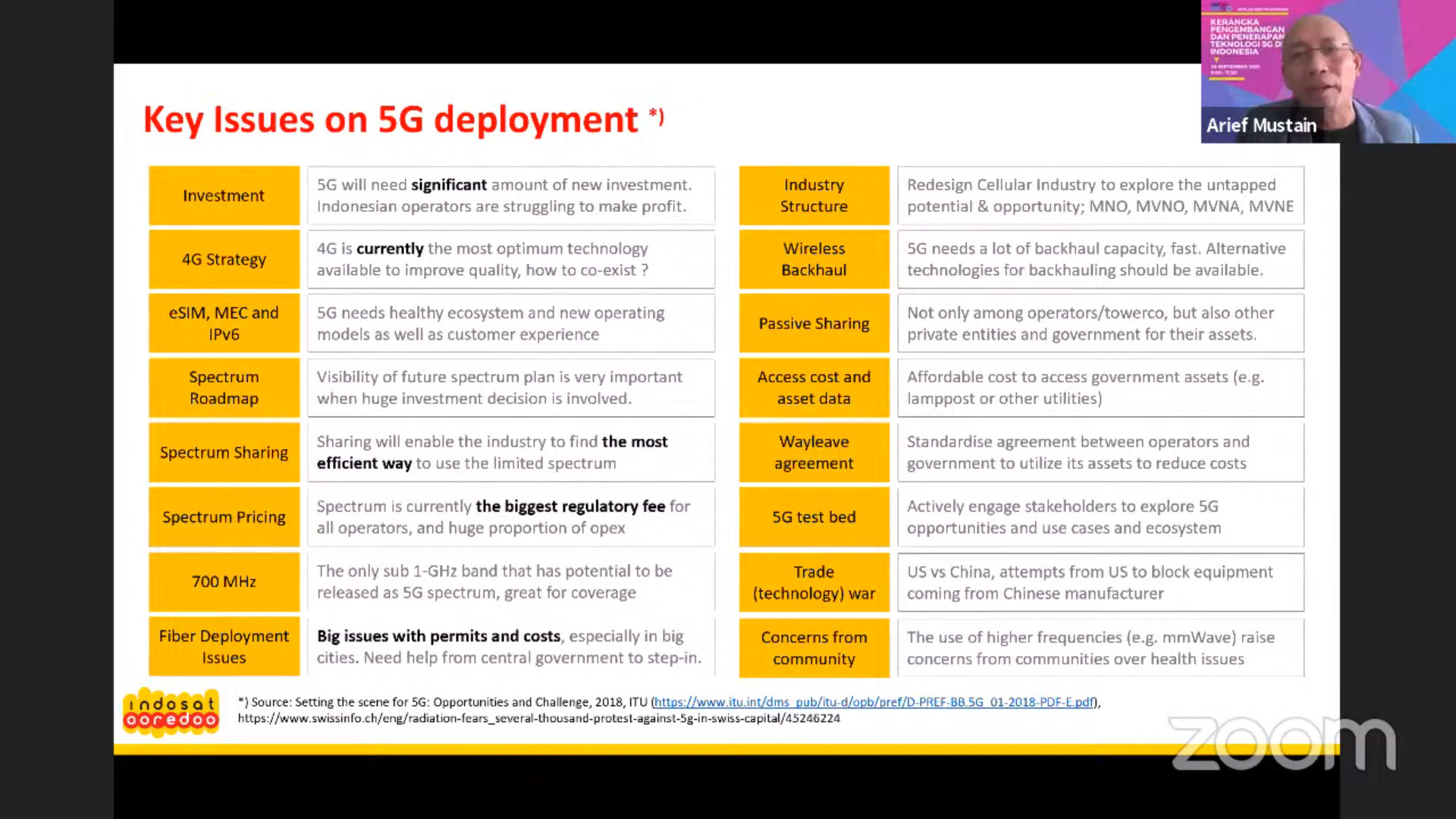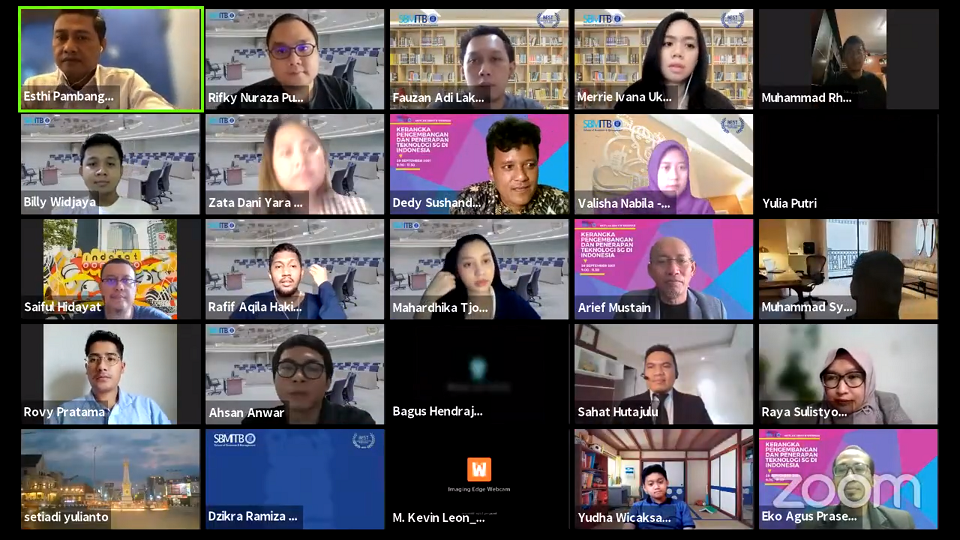Mira Tayyiba, The Secretary-General of the Indonesian Ministry of Communication and Information, said that various parties had been widely encouraged the utilization of advanced digital technology, such as the Internet of Things (IoT), Artificial Intelligence (AI), Virtual Reality (VR), both in the public and private sectors, as conveyed at the SBM ITB webinar, Wednesday, September 29, 2021.

With these advantages, its adoption keeps increasing, and its development continues to be accelerated. As of March 2021, globally, 157 cellular operators have launched commercial operations in 62 countries, including 10 of them in the Asia Pacific region. In ASEAN, among the countries that have started the commercialization phase of 5G networks include Singapore, Thailand, and the Philippines,” said Mira.
The webinar on the Framework for the Development and Application of 5G Technology in Indonesia was opened by Professor Aurik Gustomo, the Deputy Dean for Academic Affairs of SBM ITB. It was organized by the Management of Technology Lab of SBM ITB. Mira Tayyiba, the Secretary-General of the Ministry of Communication and Information of the Republic of Indonesia, and Arief Mustin, the Director & Chief Strategy and Innovation Officer Indosat Ooredoo, were the speakers. The event was moderated by Dedy Sushandoyo, a Lecturer at SBM ITB.

This webinar was a dissemination of the research results of Dr. Sahat Hutajulu, who has just completed his doctoral studies, under the supervision of Prof. Wawan Dwanto, Ph.D., and co-supervisor Dr.rer.pol. Eko Agus Prasetio.
Meanwhile, Prof. Wawan Dhewanto said “Currently, the development and application of 5G technology are hot issues, the process of transforming this telecommunication technology is getting faster. The Ministry of Communication and Information Technology has made a national 5G road map so that 5G technology can be applied throughout Indonesia at various national and regional levels.” The existence of 5G greatly contributes to the telecommunications business and the entire business ecosystem, and this 5G technology is one of the infrastructures supporting connectivity and supports the development of Indonesia’s entrepreneurial and business ecosystems.
“The appl
5G technology will be soon available for nine cities by the end of 2021, namely Jabodetabek, Solo, Medan, Balikpapan, Surabaya, Makassar, Bandung, Batam and Denpasar. It is hoped that the optimization of 5G technology will increase TKDN, the growth of domestic application and IoT developers, and the development of digital talent in Indonesia,” concluded Mira.




